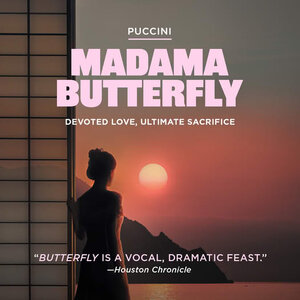^
Better than last December's Carmen in Naples set in an automobile repair shop with a car suspended above the stage. My partner and I were in Rome at the time--he had tickets for the premier but decided at the last moment to stay in Rome. When he saw the reviews the next day he was happy he inadvertently spared himself the misery of attending the performance.
A few years ago LA Opera brought a production of La Bohème from Covent Garden in London. The second scene takes place on Christmas Eve in a café in Paris. The libretto and music are light-hearted and fun, but the idiot director--a gay Australian--placed the café next to a Vespasienne--a public urinal--where actresses portraying prostutitutes simulated giving fellatio to their customer, and the joyous and innocent children's chorus was sung by children portrayed as zombies dressed in rags. At the close of the act I booed and thought I'd be joined by others, but there was only silence.
Earlier this month my partner and I attended a performance of The Tales of Hoffmann by Jacques Offenbach which was rewritten by its (again) gay director to (again) subvert the plot and libretto. It was no surprise that in the final scene Hoffmann's nemisis appears in drag.
I could go on, but you get the idea. While there are certainly many superb productions--I saw a great Andrea Chénier in London last spring--there are way too many in which the work is obscured by producers and directors who have decided to reinterpret works in subversive ways.
I can't say I have a single favorite, but I've only had the opportunity to see live opera a handful of times, and one standing in the back at a sold-out showing at the Kennedy Center.
For me, after studying vocal music in college, and singing some light modern opera, there's inherently an academic exercise element at work, unlike many other musical genres. Staging and sets have a huge effect on the production. When done badly, they can prevent the music from being transcendent.
But, when casting, costume, lighting, and orchestra are all on point, the form is indeed the apex of productions and do thrill. Agree with Latimer that reinterpretations are often a sign of decay and the longevity of the genre having run out of new directions for old material, but I have seen a few exceptions that were laudable. I remember a German staging of Elecktra. I cannot say the music inspired, but it was compelling and it did vivify the ancient Greek into a more psychological and more human story.
The other was not opera, but a staging of MacBeth that was British and reset the setting to modern day and transformed MacBeth into a sous chef, complete with ambitious scheming wife. The script was left intact. The Weird Sisters became a garbage truck crew sitting in the cab looking out over a dump, which oddly worked. The rest of the plotting and conflict worked well in an executive chef's work with greed and fame. It was remarkably entertaining, with no sarcasm in that statement.
An exceptionally bad modernizatiton was a few decades ago when I went to see "O" in 2001. I made the mistake of taking my next door neighbor, which just amplified the fail. It was a ghetto-ization of the tale, which was completely without the original script and was little more than a gangsta flick without any of the grand scale of Iago's and Othtello's respective tragedies. It was so loosely based that it really seemed more of a publicity stunt ot claim it was Othello retold.





